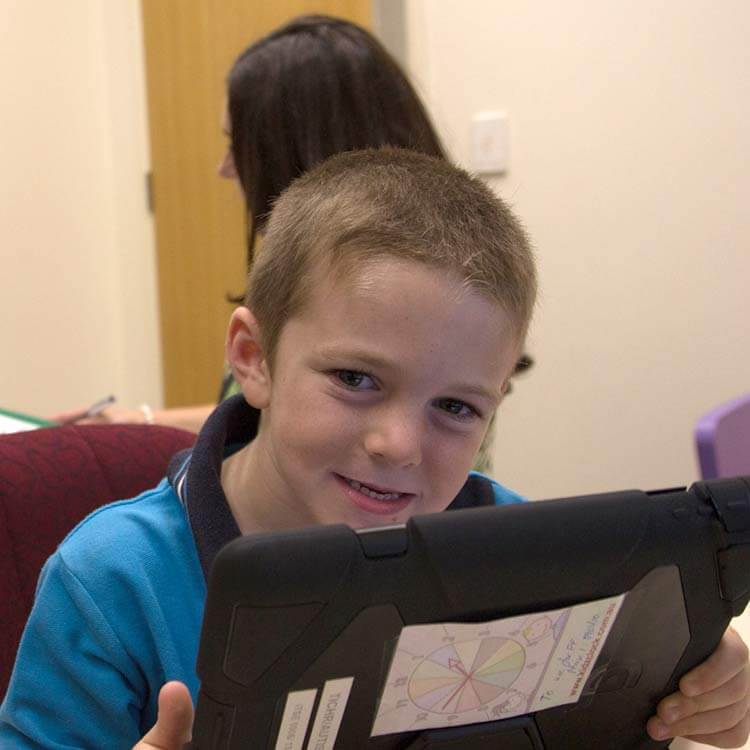Search

News & Events
Australia’s first Autism Biobank to help improve early diagnosesA world leading Autism biobank has been officially launched in Australia today by the Minister for Health, the Hon Sussan Ley.
Research
Caregiver-Mediated Early Support Program Delivered Online Versus Care-as-Usual for Infants at Elevated Familial Likelihood for AutismLiL' STEPS (Language development & Intervention Lab's SupporTing Early social-communication and language by Promoting caregiver Sensitive responsiveness) is a novel, manualized, caregiver-mediated early support program developed in India and delivered online for infants at elevated familial likelihood for autism. The program has been found to be feasible and acceptable. The preliminary efficacy of the LiL' STEPS program, which remains to be evaluated, was assessed in this study using a feasibility randomized controlled trial design.
Research
Utilising Behavioural and Sensory Profiles and Associated Perinatal Factors to Identify Meaningful Subgroups in Autism Spectrum DisorderThe heterogeneity of autism spectrum disorder clinically and aetiologically hinders intervention matching and prediction of outcomes. This study investigated if the behavioural, sensory, and perinatal factor profiles of autistic children could be used to identify distinct subgroups. Participants on the autism spectrum aged 2 to 17 years and their families were sourced via the Australian Autism Biobank.
Research
Support Preferences and Clinical Decision Support Systems (CDSS) in the Clinical Care of Autistic Children: Stakeholder PerspectivesClinical decision support systems (CDSS) are increasingly utilised within healthcare settings to enhance decision making. However, few studies have investigated their application in the context of clinical services for autistic people, with no research to date exploring the perspectives of the key stakeholders who are, or in the future may be, impacted by their use.
Research
Autism likelihood in infants born to mothers with asthma is associated with blood inflammatory gene biomarkers in pregnancyMothers with asthma or atopy have a higher likelihood of having autistic children, with maternal immune activation in pregnancy implicated as a mechanism. This study aimed to determine, in a prospective cohort of mothers with asthma and their infants, whether inflammatory gene expression in pregnancy is associated with likelihood of future autism.
Research
Developmental Relationship-Based Interventions for Autistic ChildrenAndrew Videos Whitehouse Watch and listen to Andrew PhD Deputy Director (Research); Angela Wright Bennett Professor of Autism Research at The Kids
Research
Psychosocial and neurocognitive correlates of suicidal thoughts and behaviours amongst siblings of persons with and without neurodevelopmental conditionsSiblings of individuals with neurodevelopmental conditions (NDCs) have greater incidence of neuropsychiatric diagnoses and neurocognitive difficulties compared to siblings of persons without NDCs. Despite suicidality being labelled a global health crisis (WHO, 2014) and NDC siblings experiencing risk factors implicated in suicidality, no previous studies examined suicidality amongst adolescent and young adult siblings of persons with NDCs. Our study aimed to bridge this gap.
Research
Sertraline for anxiety in adults with a diagnosis of autism (STRATA): study protocol for a pragmatic, multicentre, double-blind, placebo-controlled randomised controlled trialSelective serotonin reuptake inhibitors (SSRIs) are commonly prescribed to manage anxiety in adults with an autism diagnosis. However, their effectiveness and adverse effect profile in the autistic population are not well known. This trial aims to determine the effectiveness and cost-effectiveness of the SSRI sertraline in reducing symptoms of anxiety and improving quality of life in adults with a diagnosis of autism compared with placebo and to quantify any adverse effects.
Research
The valence-specific empathy imbalance hypothesis of autism: The role of autistic traits, alexithymia, emotion dysregulation, and gender differencesIndividuals exhibiting pronounced autistic traits (e.g., social differences and specialised interests) may struggle with cognitive empathy (i.e., the ability to infer others' emotions), although the relationship with affective empathy (i.e., the ability to share others' emotions) is less clear in that higher levels of autistic traits may be linked with increased affective empathy for negative emotions but reduced affective empathy for positive emotions. The current study investigates this empathy profile and whether alexithymia and emotion dysregulation help to explain it.
Research
Atypical nested 22q11.2 duplications are associated with neurodevelopmental phenotypes including autism spectrum disorder with incomplete penetranceOur findings contribute to the genotype–phenotype data for atypical nested 22q11.2 duplications, with implications for genetic counseling
